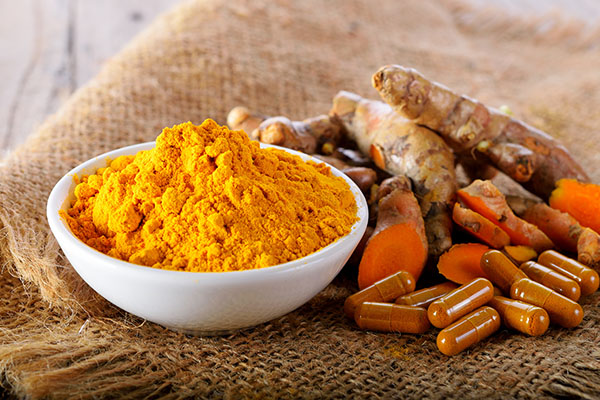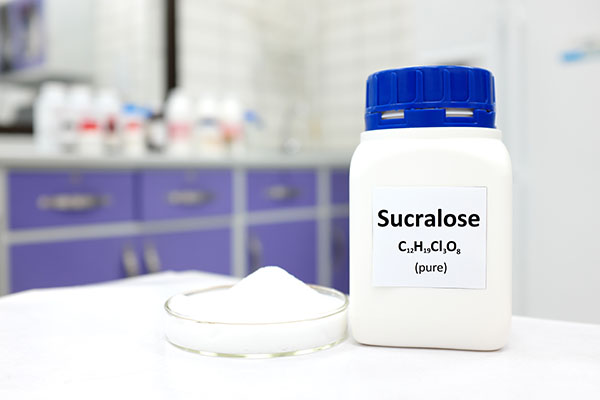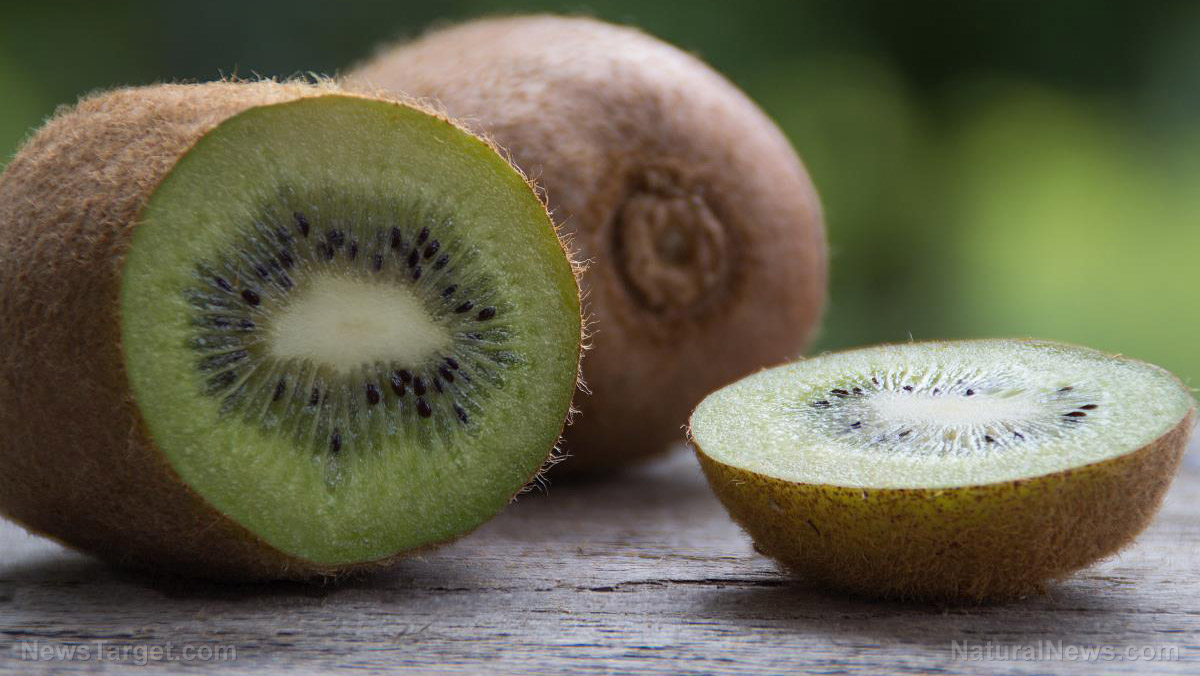Combine TURMERIC with BLACK PEPPER for the ultimate antioxidant natural remedy for combating inflammation and boosting heart health
10/20/2025 / By S.D. Wells

For centuries, turmeric has been celebrated as one of nature’s most potent healing botanicals. This golden spice, rooted in Ayurvedic and traditional Chinese medicine, is renowned for its antioxidant, anti-inflammatory, and rejuvenating properties. However, what many don’t realize is that turmeric’s health benefits are significantly amplified when it’s paired with black pepper—a culinary combination that goes far beyond flavor. The key lies in a compound called piperine, the bioactive powerhouse within black pepper that dramatically boosts turmeric’s absorption and delivers its own range of therapeutic effects.
- Turmeric and black pepper are a powerful duo: Turmeric is celebrated for its potent antioxidant and anti-inflammatory properties, but its key active compound, curcumin, is poorly absorbed on its own. Black pepper—specifically its bioactive compound piperine—dramatically boosts turmeric’s absorption and effectiveness by up to 2,000%, making the pairing both traditional and scientifically validated.*
- Piperine’s unique health benefits: Beyond enhancing absorption, piperine offers its own antioxidant, anti-inflammatory, and blood sugar–regulating properties.* It supports liver function, digestive enzyme activity, and immune balance, helping the body detoxify and maintain optimal health naturally.*
- The world’s first bio-enhancer: Discovered by Indian scientists in 1976, piperine was identified as the first-ever natural bioavailability enhancer, shown to improve the absorption of nutrients and phytonutrients such as curcumin, resveratrol, and iron.* This makes it a cornerstone ingredient in both traditional medicine and modern supplementation.*
- Ancient wisdom meets modern science: Both turmeric and black pepper have roots in Ayurvedic and Chinese medicine, used for centuries to combat inflammation, support joint health, aid digestion, and promote longevity.* Today, their synergistic power continues to be harnessed in formulas like turmeric ginger+, combining tradition and science for optimal absorption and whole-body wellness.*
What Makes Black Pepper Special: The Power of Piperine
Piperine is the main bioactive compound responsible for black pepper’s sharp, spicy flavor—and its many health-promoting effects. Found in the Piper nigrum fruit, piperine has been revered in Ayurvedic and traditional medicine for centuries, long before it was isolated and studied in modern science. This potent phytonutrient exhibits antioxidant and anti-inflammatory properties that support liver function, digestion, blood circulation, and immune balance.*
Among its various functions, one of piperine’s most remarkable abilities is enhancing nutrient absorption. Piperine has been scientifically validated as the world’s first bio-enhancer, a term coined by Indian researchers in 1976. Since then, studies have shown that it increases the bioavailability of several vital nutrients and botanicals, including resveratrol, iron, and especially curcumin—the primary active compound in turmeric.*
Why Turmeric and Black Pepper Work Better Together
Curcumin, turmeric’s most studied curcuminoid, is a potent antioxidant that supports joint health, brain function, heart health, and a balanced inflammatory response.* However, curcumin is notoriously difficult for the human body to absorb on its own. When taken alone, only a small fraction enters the bloodstream, limiting its potential benefits. This is where black pepper steps in: piperine enhances curcumin’s absorption by an astounding 2,000%, according to research published in Planta Medica. This dramatic boost means that even a small amount of black pepper can make a significant difference in how effectively your body uses turmeric.*
This synergy explains why traditional recipes—like golden milk, curries, and herbal tonics—combine these two ingredients. Piperine slows the metabolic breakdown of curcumin in the liver and intestines, allowing it to remain active in the bloodstream much longer. In essence, black pepper transforms turmeric from a good supplement into a great one, ensuring your body reaps its full potential.
Beyond Absorption: The Independent Benefits of Piperine and Curcumin
Beyond its bio-enhancing capabilities, piperine contributes independently to health and wellness. It helps stimulate digestive enzymes in the pancreas and intestines, improving nutrient assimilation and gut function.* Piperine has also been shown in preclinical studies to help regulate blood sugar and support a healthy inflammatory response.* Meanwhile, curcumin’s broad-spectrum benefits extend throughout the body: it aids joint comfort and flexibility, supports cardiovascular and nervous system health, and promotes longevity by protecting cells from oxidative stress.*
According to holistic experts, turmeric’s effects go beyond symptom relief—it promotes systemic balance and resilience. The curcumin in turmeric binds to pro-inflammatory cytokines and modulates key molecular pathways (like NF-?B), reducing oxidative stress and inflammation throughout the body.* This is why turmeric is considered a foundational herb in Ayurvedic medicine, supporting everything from brain clarity to digestive harmony.*
A Modern Way to Harness an Ancient Pairing
In today’s wellness landscape, turmeric and black pepper are more accessible than ever—through supplements, powders, teas, and functional blends. Products like turmeric ginger+ combine these ingredients in optimal ratios for maximum absorption, without the digestive discomfort that high-dose curcumin alone can sometimes cause.* Whether you prefer to sip golden milk, add turmeric to your meals, or take a daily capsule, the key is simple: always include piperine.
The Takeaway
Turmeric and black pepper are more than just a culinary match—they are a scientifically backed partnership rooted in ancient wisdom. Piperine, black pepper’s star compound, doesn’t just elevate flavor; it amplifies turmeric’s potency, ensuring your body truly benefits from its remarkable properties. Together, they form a dynamic duo that supports inflammation balance, digestion, circulation, immunity, and longevity.*
So the next time you sprinkle turmeric into your smoothie, latte, or curry, don’t forget a dash of black pepper—it’s the secret that unlocks turmeric’s full healing potential.* Tune your internet dial to NaturalMedicine.news for more tips on how to use natural remedies for preventative medicine and for healing, instead of succumbing to Big Pharma products that cause, spread, and exacerbate disease and disorder.
Sources for this article include:
Submit a correction >>
Tagged Under:
antioxidant, black pepper, brain function, curcuminoid, Cures, healing, Heart, Herbs, joint health, natural medicine, pain relief, plant medicine, prevention, remedies, turmeric, turmeric pepper
This article may contain statements that reflect the opinion of the author





















